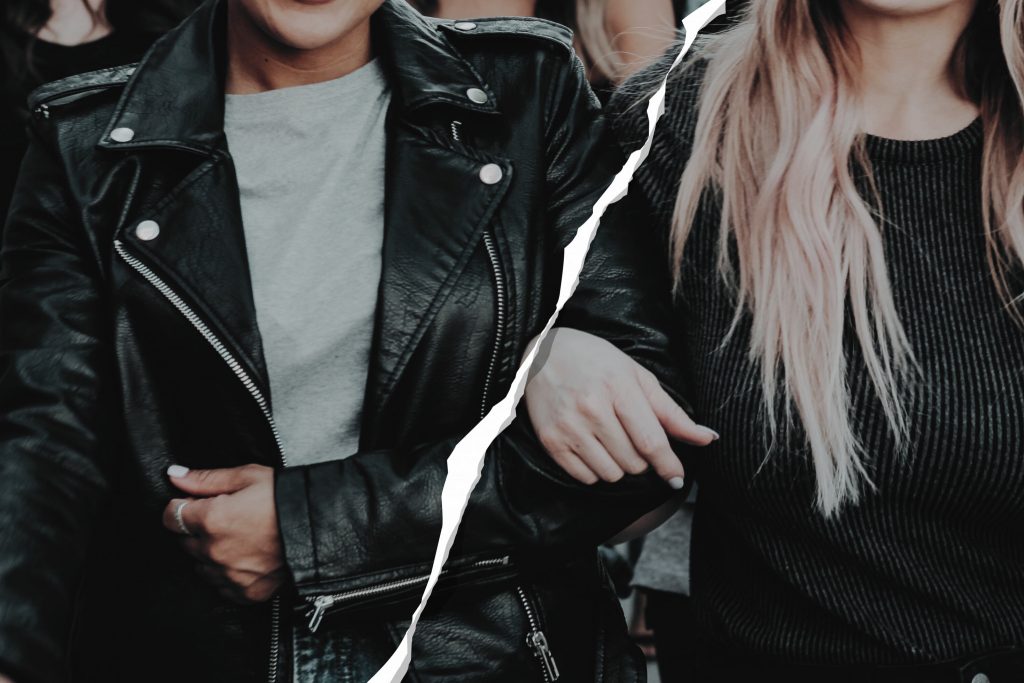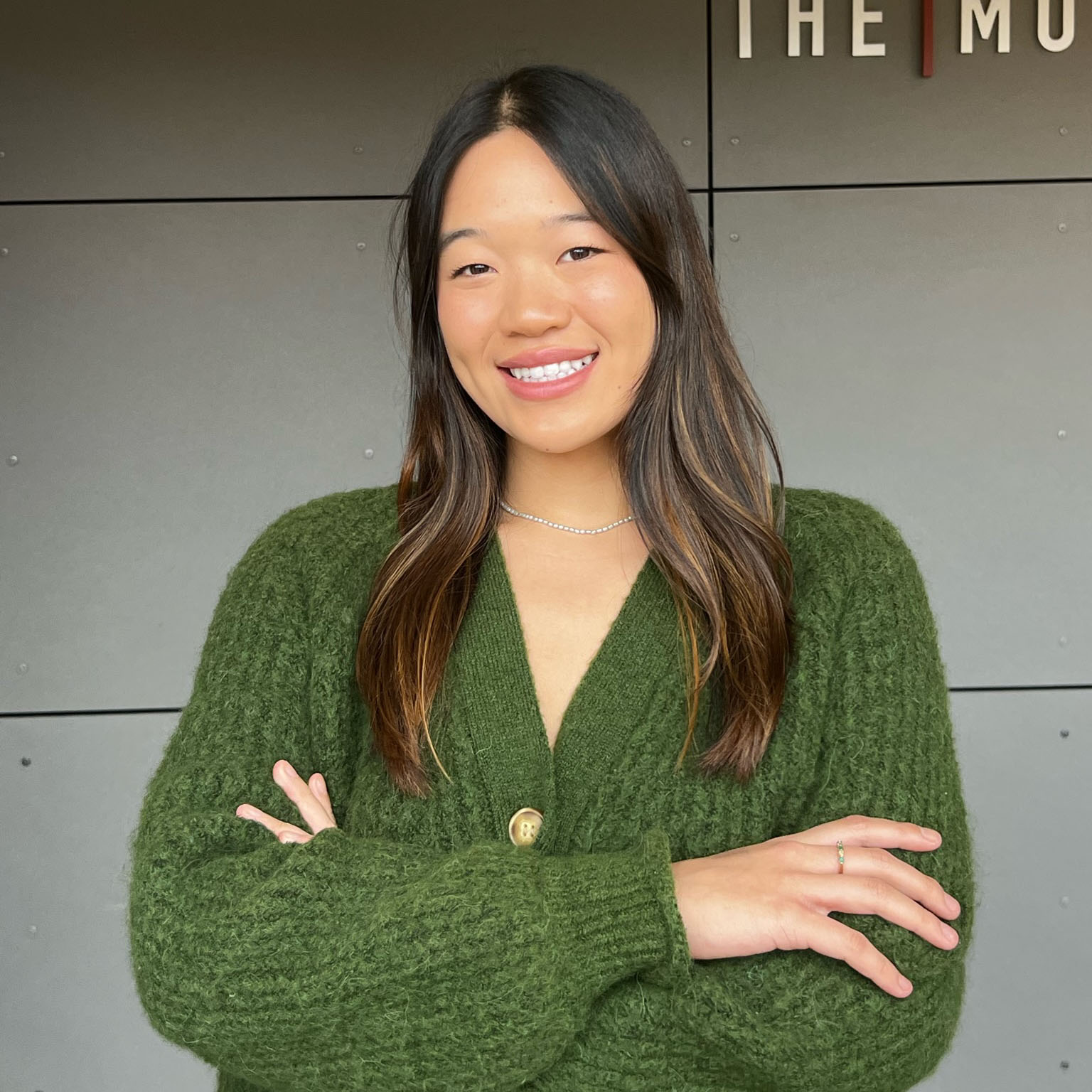What COVID-19 did to college friendship and love
How COVID-19 affected seniors' relationships

In 2019, Meghan Domroes, like many young, bright-eyed freshmen, quickly joined a large friend group by means of orientation events, new classes, hall meetings, and everything in between. They became inseparable within their freshman year fall semester. But by spring, the pandemic challenged their relationship.
“COVID caused a very unique strain to be placed on my relationships. Friend group drama changed from trivial issues to larger conflicts over how to live on a college campus during a global pandemic,” Domroes says.
The relationships and friendships we build throughout life offer general emotional and psychological support, increasing positive feelings and overall life satisfaction. Studies have shown that younger people often prefer sources of social support found in friends, rather than parents, siblings, or other family members and experience more positive associations from those chosen social relationships. Multiple findings indicate that positive relationship quality with friends is related to lower symptoms and experiences of loneliness and depression.
But when the opportunity to build new relationships on campus is forcibly taken away, and null and void social interaction takes its place, everything changes.
Despite being on campus during her sophomore year, Ellie Wilson acknowledges that the pandemic prevented her from building more of an on-campus community.
“I luckily was able to go into COVID with a core group, but I feel like I missed out on my sophomore year especially. We didn’t have a chance to go to more parties or social events and it stopped me from being able to make more friends. I don’t really have a strong sense of community at Syracuse, beyond my core friend group,” Wilson says.
Rosie Daly was one of the students who chose not to return to campus in the fall of 2020. For health reasons, she thought it best not to return to in-person classes right away and, as a result, experienced a lot of loneliness and lost connections. “I was lucky enough to be involved in a big friend group at the beginning of freshman year, but COVID definitely downsized my friend group. It was hard to keep in touch with the friends I had made my freshman year because I wasn’t physically there, but they were all living together,” Daly says. “It definitely felt isolating, to be at home while my friends were all on campus.”
But, when Daly returned to campus in the spring of 2021, she still struggled to feel connected.
“The weight of having to navigate finding yourself, and your own values with the additional fear of COVID permeated my friend group and it ended up breaking us apart. I’m very grateful that I’m able to have the friends that I have now. I feel very connected to them. But it was a very forceful and painful separation created by the pandemic,” Daly says.
Dr. Jeewon Oh, a social psychologist at Syracuse University who researches interpersonal relationships, found similar results to Daly’s experience. “We looked at people’s levels of conscientiousness as predictors and factors in relationships. We found that if you were more health conscientious, you were less likely to start a new relationship. This could be because maybe they were good at following COVID rules or guidelines, so they were less likely to meet other people organically outside or in public places,” Oh says.
SU social psychologist Dr. Sara Burke says COVID put all kinds of strains on relationships. “Some of them were on a more micro-level, where people had a harder time meeting face to face. And maybe some of those relationships depended on that, and it was just harder to sustain those,” she explains. “On a more macro-level, people got upset with each other because they had differing opinions about how best to respond to the public health crisis,” Burke says.
In her sophomore year, Domroes struggled to navigate pandemic precautions with friends who made different choices.
“I found myself having to awkwardly confront my friends and roommates about wearing a mask around us because I knew that they had been around many other people, and some of our other friends had conflicting health issues. COVID became a very politicized issue in our group and ended up being a big reason why I had to split up from some formerly close friends,” she says.
But amid lockdowns, masking mandates and stay-at-home orders, one unexpected outcome from the pandemic was the start of new relationships. About a fifth of college students started new romantic relationships during the pandemic, Oh’s research found. “We were worried about relationships dissolving and people breaking up and experiencing heightened relationship stressors during such a stressful period of time. But we actually see people starting new relationships in this period, and that signifies that maybe things are somewhat more normal than we think, in terms of these relationship contexts,” Oh says.
Dr. Burke explains how important it is to look at the effects of the pandemic on social interactions because everything is linked to the context and environment around us. “Social psychology is constantly attached to history, we have to be aware of things that are going on in the world in order to understand changing social attitudes,” Burke says.
The pandemic coincided with the recent development of technology like Zoom and FaceTime, creating new ways for people to maintain relationships. Seniors Mykenna Maniece and Michaela Varvis met their respective boyfriends in their hometowns before COVID-19 hit the world, but neither of their relationships started until the height of the pandemic.
Maniece met her boyfriend, Jared Hamlin, in her senior year of high school. The two met through mutual friends and quickly clicked. At the end of the summer of 2019, Hamlin stayed near their hometowns to attend Towson University, and Maniece left for Syracuse. The two kept consistent contact via texting and FaceTime over the span of their freshman and sophomore years. Their friendship slowly evolved, and while both insisted that they were just friends, the long, late-night calls continued and eventually Hamlin asked Maniece to be his girlfriend in November of 2020. The two have maintained their relationship long-distance, and Maniece attributes a lot of it to FaceTime.
A study about isolation conducted during the pandemic revealed that video calls were shown to be highly satisfying. Video calls were most similar to face-to-face interactions and therefore successful in replacing the universal lack of physical closeness. This data implies that physical distancing needed technology to facilitate meaningful relationships.
Professor Charisse L’Pree Corsbie-Massay, a social psychologist and associate professor at Newhouse, believes that technology played a huge role in forming close social relationships outside of campus, during the pandemic.
“It is vital to understand the technological ecology that Gen Z was deeply immersed in pre-pandemic. With the modern accessibility of FaceTime and texting, students were able to maintain and strengthen those relationships at home, in ways that past generations have not had the means to do,” L’Pree says.
Six months of friendship did not necessarily equate to years-long, established relationships from home. Because of technology, students were able to connect with pre-existing support systems rather than rely on the newer, more tenuous relationships.
“I think the intersection of COVID and technology created the opportunity for people to reconnect on social media, especially for those that maybe they hadn’t talked to in a while,” Varvis says. “At least, that happened for me.”
Varvis remembers attending middle school with her boyfriend, Jacob Davis. The two went to different high schools and colleges, and at the end of her sophomore spring semester, Varvis distinctly remembers feeling a little dejected at the lack of opportunities to meet new people. “I remember staying really tight in my bubble and I was being really cautious, and for me, meeting new people was dangerous,” Varvis says.
Davis used Instagram to reconnect with Varvis in June 2021. “I think it’s interesting that I started dating someone I knew previously. I never thought that my college long-term relationship would be with someone I went to middle school with,” Varvis says.
In addition to new romantic relationships, many new friendships were created and fostered coming out of global isolation.
For senior Ellie Wilson some of the people she considers to be her best friends today are not the same people she experienced the start, or even height, of the pandemic with. “I was able to become friends with some new people at the beginning of my junior year, as COVID regulations were starting to lift, and that’s been really great. I feel like I’ve been able to get a lot closer with them because I can have a normal college experience and go out to restaurants and be in a big social group, which is amazing,” Wilson says.
The pandemic was so unique in the changes it brought to social relationships, especially on campus. It created new unexpected obstacles, challenges and experiences that simultaneously drew people closer together and pushed them further apart.
Domroes wouldn’t change anything about her college experience, despite the unconventionality of the past four years. “I think I’ll always look back on college with a little sense of what I lost, and what could have been if not for COVID, but I feel like my relationships now are stronger than they ever would have been in the first place,” Domroes says.







